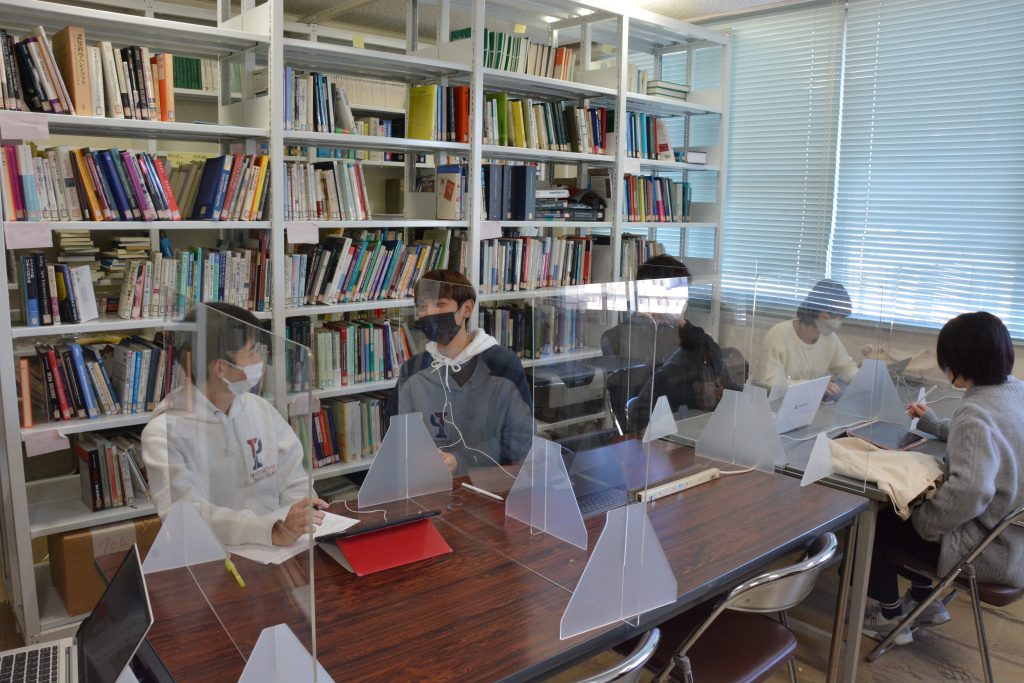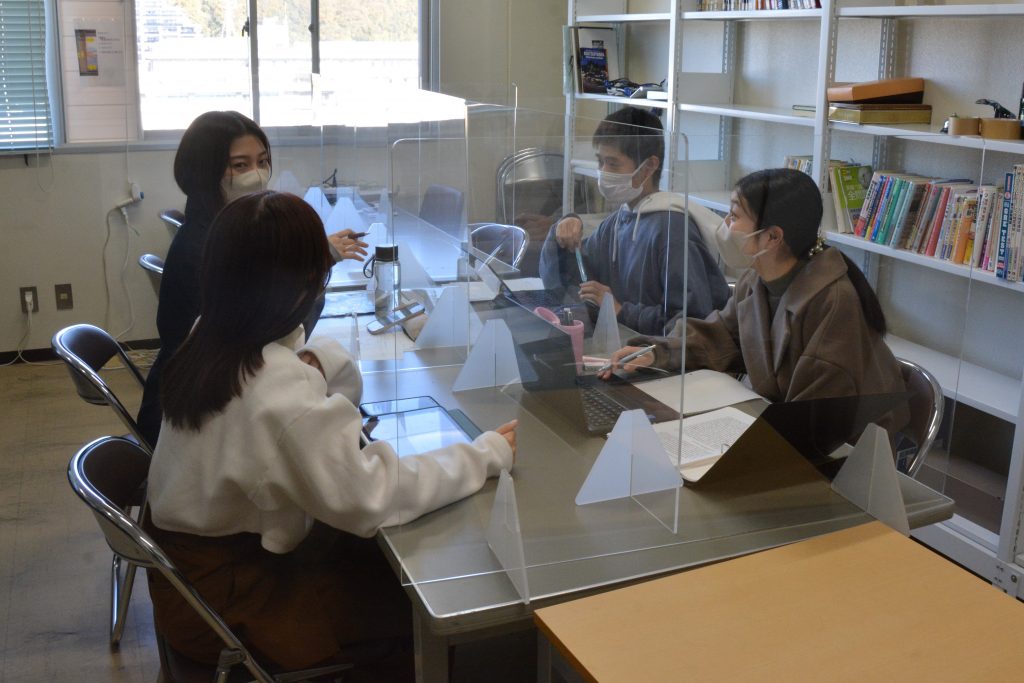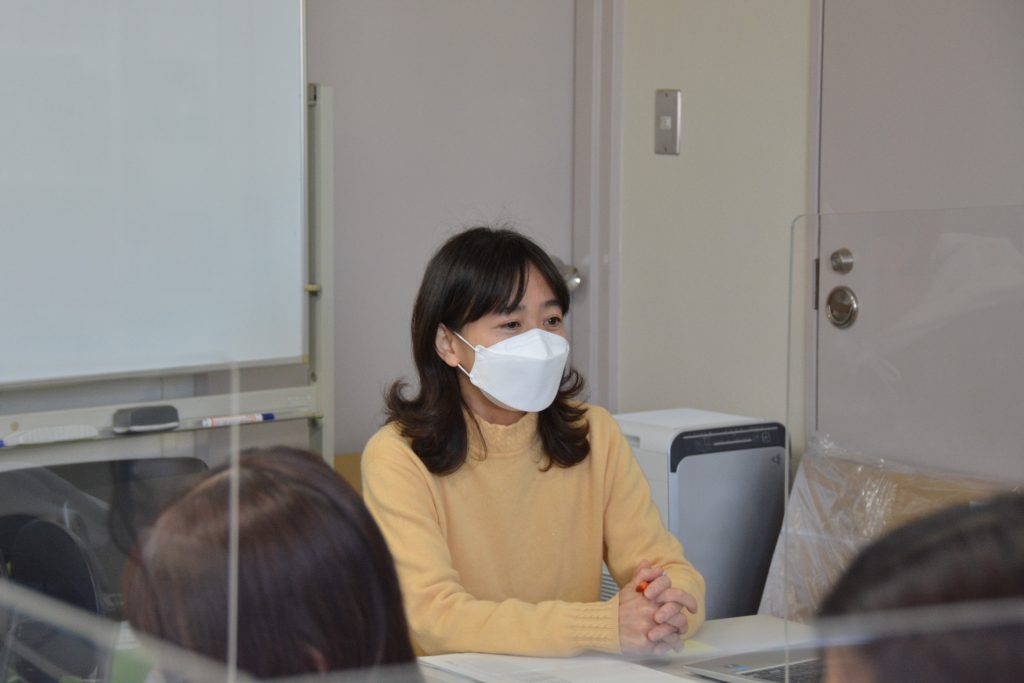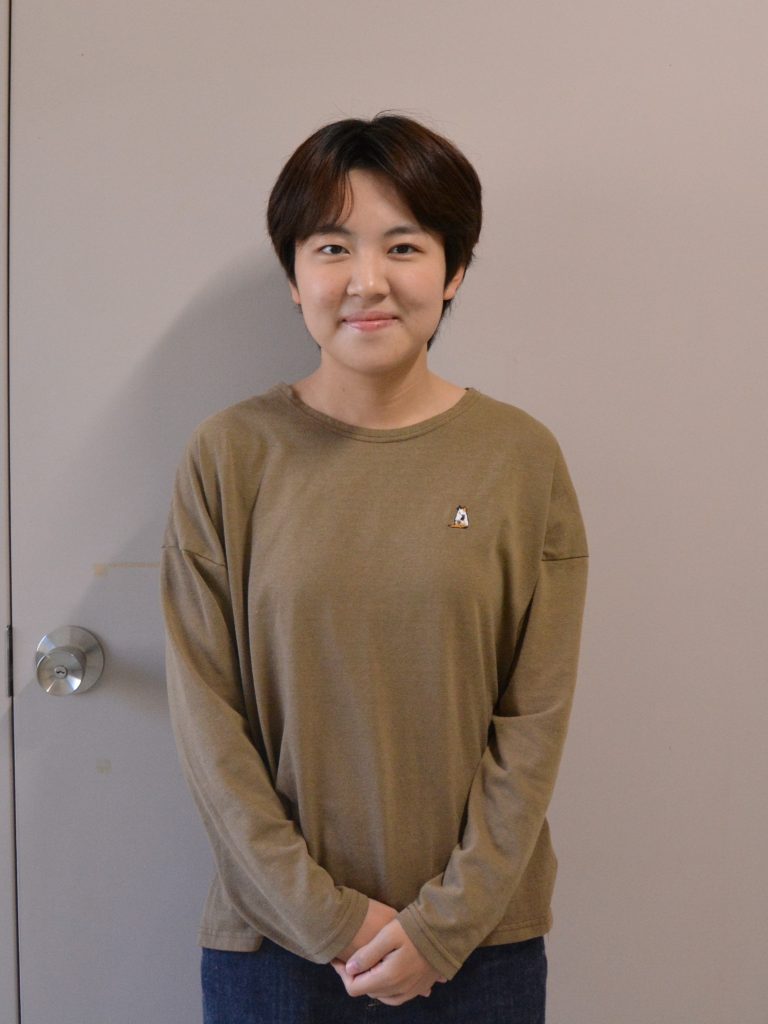In this class, students will carefully read and deepen their understanding of English papers on English language acquisition and cross-cultural adaptation, and reflect on their own ideas about English language learning and education through discussions among students. As for the seminar students, they will find topics of interest through various discussions, which will lead to their graduation theses.
Lesson Content
Today’s seating will be decided by a game of rock-paper-scissors-scissors with me (a faculty member).”
The class started with this call to action. Since group discussions are held in every class, we always change seats to avoid having discussions with the same people all the time. The student in charge of that day’s class will suggest how to change seats. After changing seats, the lecture begins with the student in charge explaining what is written in the English paper that serves as the teaching material.
In this class, three to four papers written in English will be used as course materials during the course period. At the beginning of the semester, the instructor for each class day is assigned in advance, and the instructor presents an explanation of the paper in Japanese on the day of class. All students are required to read the papers carefully and submit assignments and questions in advance.
On the day of the interview, a paper on the importance of international orientation in English communication described the results of a survey conducted by the researchers and their methods of analysis.
Faculty members provide supplemental comments, explanations, and advice in response to the presentations, and also answer questions from the students. Questions are not limited to how to express themselves in English, but many are about the content of the paper itself, indicating that the students have read the paper thoroughly.
The objective is not only to translate English papers, but also to understand the content of those papers, and even to learn how to write papers in English.


The second half of the class was a discussion in groups of three or four, with the topic chosen by the instructor based on the content of the day’s paper, which on this day was about what elements are necessary for English communication in Japan. After the discussion, representatives from each group summarize their opinions and make a presentation.
The most impressive feature of the class is that when the instructor asks a question or a question is asked, someone naturally speaks up without having to be designated. Instead of raising a hand, nominating someone, or standing up to speak, the class is left to the initiative of the students. This style of teaching is also one of the learning styles regarding cross-cultural adaptation.
Comments from faculty
Have you ever thought about why you have studied English? I am sure that there are many reasons, ranging from “because it was a subject in junior high school and high school,” “because it is required for entrance exams,” to “because I want to use English for work in the future. Such questions as “Why do you learn English?” are central to my field of expertise, “foreign language learning motivation,” and research on learning motivation among Japanese learners of English continues to be very active worldwide.
In the class, we will read various articles written in English on English learning and acquisition, including “motivation,” and through discussions on the content, students will reflect on the process of English learning to date and consider future learning and education. Recently, we have also introduced research on learners who are simultaneously studying languages other than English in addition to English, and together with the students, we discuss what it means to learn a language in a broad sense.
Thinking about learning and mastering English using various papers as material may change the way you think about the meaning of English to you, or the meaning of language in general, and may motivate you to try learning English and other languages! You may also be motivated to learn more languages, including English! Why don’t you join us and think about the acquisition of English and the existence of language?
Comments from students
Nanami Yano, 4th year student, Department of Humanities and Social Sciences, Faculty of Law and Letters
In this class, you will learn about what is happening in a person when they are learning a second language, such as English, from a variety of angles. For example, when speaking in a foreign language, there are people who speak aggressively and others who have difficulty speaking. What is the difference between these people? This class is characterized by reading and discussing papers on such studies of language acquisition.
Also, the axis of this class is “dialogue” between students and teachers, and between students, rather than one-way communication by the teacher. This may be a big difference from the classes up to high school. It is the students who give the main explanations of the English papers and decide the topics for discussion. The teacher supplements the students’ explanations and answers their questions. This flexible format allows students to fully exercise their curiosity.
Discussions are much more interesting with people with different ideas. Let’s talk together!



